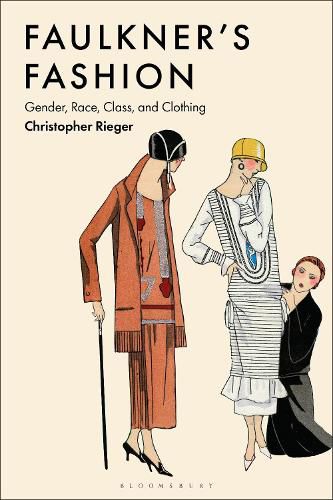Readings Newsletter
Become a Readings Member to make your shopping experience even easier.
Sign in or sign up for free!
You’re not far away from qualifying for FREE standard shipping within Australia
You’ve qualified for FREE standard shipping within Australia
The cart is loading…






The first book-length study of clothing and dress across William Faulkner's novels and short stories.
Clothing is one of the most important and pervasive material items throughout William Faulkner's fiction. Faulkner's Fashion analyzes the writer's use of clothing from a variety of critical approaches, considering how clothing and dress intersect with race, class, and gender across Faulkner's works. It also considers clothes as material objects, using Thing Theory and Object Oriented Ontology to illuminate the role clothing plays as an object in conjunction with its multiple layers of symbolic meaning to both the wearer and the observer.
Faulkner's Fashion reveals how much attention Faulkner pays to garments and fashion in his own life and in his fiction, arguing that dress is often a means of characterization for Faulkner, while it also connects his narrative representations of gender, sexuality, class, poverty, race, and modernity.
$9.00 standard shipping within Australia
FREE standard shipping within Australia for orders over $100.00
Express & International shipping calculated at checkout
The first book-length study of clothing and dress across William Faulkner's novels and short stories.
Clothing is one of the most important and pervasive material items throughout William Faulkner's fiction. Faulkner's Fashion analyzes the writer's use of clothing from a variety of critical approaches, considering how clothing and dress intersect with race, class, and gender across Faulkner's works. It also considers clothes as material objects, using Thing Theory and Object Oriented Ontology to illuminate the role clothing plays as an object in conjunction with its multiple layers of symbolic meaning to both the wearer and the observer.
Faulkner's Fashion reveals how much attention Faulkner pays to garments and fashion in his own life and in his fiction, arguing that dress is often a means of characterization for Faulkner, while it also connects his narrative representations of gender, sexuality, class, poverty, race, and modernity.